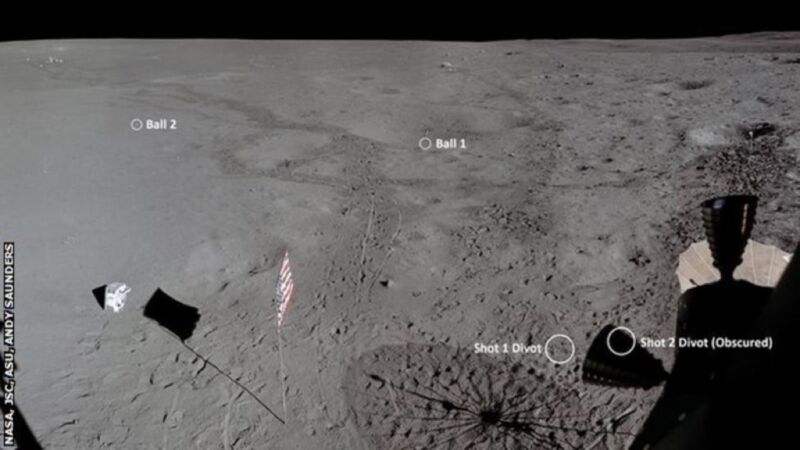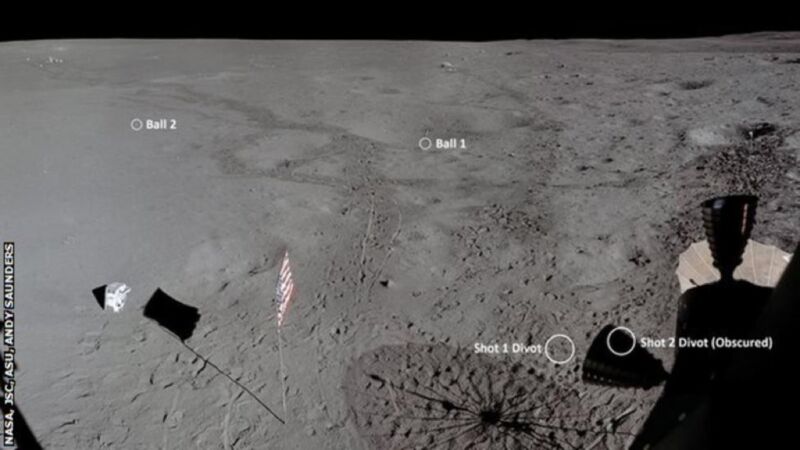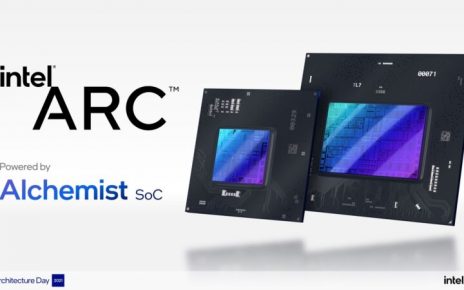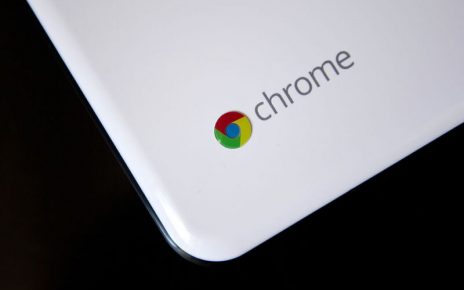
Enlarge / This image consists of six photographs taken from the Apollo 14 Lunar Module, enhanced and stitched into a single panorama to show the landing scene, along with the location from where Alan Shepard hit two golf balls. Both astronaut’s PLSS’ (life-support backpacks) can also be seen at left. (credit: NASA / JSC / ASU / Andy Saunders)
Fifty years ago this week, NASA astronaut Alan B. Shepard Jr. made space history when he took a few golf swings on the Moon during the Apollo 14 mission, successfully hitting two golf balls across the lunar surface. Space enthusiasts have debated for decades just how far that second ball traveled. It seems we now have an answer, thanks to the efforts of imaging specialist Andy Saunders, who digitally enhanced archival images from that mission and used them to estimate the final resting spots of the golf balls.
Saunders, who has been working with the United States Golf Association (USGA) to commemorate Shepard’s historical feat, announced his findings in a Twitter thread. Saunders concluded that the first golf ball Shepard hit traveled roughly 24 yards, while the second golf ball traveled 40 yards.
Shepard’s fondness for cheeky irreverence had popped up occasionally during his successful pre-NASA naval career, most notably when he was a test pilot at the Naval Air Station Patuxent River in Maryland. He was nearly court-martialed for looping the Chesapeake Bay Bridge during a test flight, but fortunately, his superiors intervened. When President Dwight D. Eisenhower established NASA in 1959, Shepard was selected as one of the seven Mercury astronauts. (The others were Scott Carpenter, Gordon Cooper, John Glenn, Gus Grissom, Wally Schirra, and Deke Slayton.)





